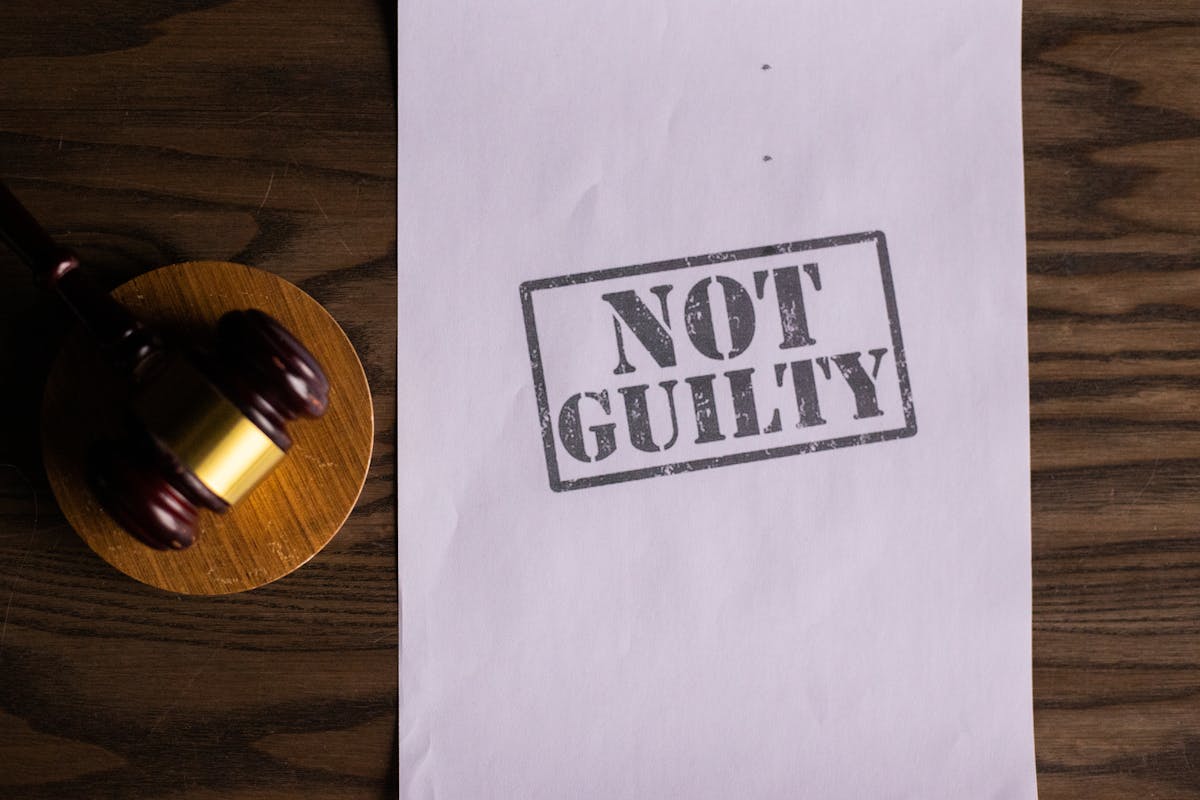Maneuvering the legal labyrinth of a misdemeanor case in Arizona is a complex process, from the initial arrest to potential appeals. The journey often begins with an arrest, followed by an arraignment and possibly, pretrial proceedings. The path may then lead to a trial, where evidence is presented before a verdict is reached. But what exactly transpires in each of these stages? And how does this timeline impact the defendant’s case and potential outcome? These are essential questions that merit thorough examination to better understand the legal intricacies of misdemeanor cases in Arizona.
Initial Arrest and Charge
The initial stage in the timeline of a misdemeanor case in Arizona is the arrest and subsequent charge. In this instance, the arrest procedures are of significant importance as they set the tone for the legal process that follows. These procedures are governed by the Fourth Amendment of the U.S. Constitution, and Arizona’s own criminal justice statutes.
During an arrest, law enforcement officials must adhere to stringent rules. Remarkably, the police must have a reasonable suspicion that a misdemeanor has been committed. If this requirement is not met, then the arrest could be deemed unlawful, potentially leading to the dismissal of initial charges.
Once the arrest is made, the initial charges are then filed. It’s essential to understand that these are preliminary charges that can be modified or dropped as the investigation progresses. The charges are based on the arresting officer’s understanding of the case at that time, and the evidence available.
Your Right to Attorney
Upon being charged with a misdemeanor, it is essential to understand your legal rights, one of the most significant of which is the right to an attorney. This right to counsel is enshrined in the Sixth Amendment of the U.S. Constitution, and it is designed to guarantee that all individuals, regardless of their financial status, have the necessary legal representation to navigate the complexities of the judicial process.
In Arizona, if you cannot afford a private attorney, the court will appoint a public defender to represent you. This is an important protection that assures fair treatment within the justice system. However, it is imperative to remember that the right to counsel does not necessarily mean free counsel. If you can afford attorney fees, you are expected to pay for your legal representation.
It’s recommended to exercise your right to an attorney as early as possible in the process. This legal professional can provide advice on how to respond during police questioning, represent you in court, negotiate plea bargains, and explain the potential consequences of different legal strategies. Remember, having an attorney does not merely mean having a legal expert on your side; it means having a defender of your rights throughout the process.
Arraignment Proceedings
After being charged with a misdemeanor, the next vital step in the judicial process is the arraignment proceedings. This is the initial hearing where the defendant’s rights are stated, the charges are read, and a plea is entered. The arraignment procedures in Arizona are strict and require the defendant’s presence unless waived by the court.
The defendant is informed of the charges against them, any potential penalties, and their constitutional rights. If the defendant does not have an attorney, the court will advise them of their right to one. If the defendant cannot afford an attorney, one will be appointed for them.
Following this, the defendant will enter a plea. The pleas available are guilty, not guilty, or no contest. A guilty plea or no contest plea concludes the arraignment proceedings and the case moves towards sentencing. A not guilty plea leads to the scheduling of future court dates, including a pretrial conference.
It is essential for defendants to understand the arraignment procedures as it sets the tone for the rest of the case. Any misunderstandings or missteps can have significant legal consequences. As a result, legal counsel is highly recommended at this stage.
Pretrial Conference
The pretrial conference is a critical juncture in the timeline of a misdemeanor case in Arizona, providing an opportunity for procedural and substantive issues to be addressed. It is in this phase that the defense attorney plays a pivotal role, strategically maneuvering the landscape of the case to protect the defendant’s rights. In addition, it is often during the pretrial conference where plea agreements are negotiated, offering potential resolutions before the case proceeds to trial.
Understanding Pretrial Conference
In a defendant’s journey through the Arizona legal system, a notable milestone is the pretrial conference. This conference is a formal court proceeding, designed to streamline the trial process and resolve any outstanding issues before trial begins.
During the pretrial conference, the defendant, the prosecuting attorney, and the judge will discuss several matters. They will review the evidence, clarify the facts of the case, and settle procedural issues. It is also an opportunity for the parties to discuss potential plea bargains or other alternatives to trial.
One vital aspect of the pretrial conference involves pretrial motions. These are requests made by either party to facilitate the trial process or resolve legal issues. For instance, a defense attorney may file a motion to suppress evidence if they believe it was obtained unlawfully.
The conference outcomes can greatly impact the course of the case. The judge may rule on pretrial motions, potentially excluding certain evidence or witnesses. In some cases, the parties may agree to a plea bargain, effectively ending the case before it goes to trial. As a result, understanding the pretrial conference is essential for those maneuvering through the Arizona legal system.

Role of Defense Attorney
Having explored the general proceedings of the pretrial conference, it’s now apt to focus on the role that the defense attorney plays during this vital phase. The defense attorney’s primary responsibility is to represent the accused, ensuring that the client’s rights are safeguarded throughout the legal process.
In the pretrial conference, the defense attorney’s expertise plays a pivotal role in shaping defense strategies. They analyze the strengths and weaknesses of the prosecution’s case, diligently scrutinizing the evidence, and identifying potential loopholes. This meticulous analysis aids in determining the most effective defense approach, ranging from challenging the accuracy of evidence, questioning the legality of the arrest, to arguing the credibility of witnesses.
Under the guise of attorney client privilege, the defense attorney maintains a confidential relationship with the client. This privilege facilitates open and honest communication, allowing the attorney to gather all necessary information to build a robust defense. It is also the defense attorney’s duty to educate their client about the legal implications and potential outcomes of their case. This helps in setting realistic expectations and preparing the client for the trial proceedings, thereby playing a vital role in the pretrial conference.
Negotiating Plea Agreements
As an integral part of the pretrial conference, negotiating plea agreements marks a defining moment in the trajectory of a misdemeanor case in Arizona. This process is a delicate interplay of effective communication skills and strategic decision-making, aimed at achieving the most favorable outcome for the defendant.
Plea negotiation strategies are essential in this stage, which often involves a trade-off between the prosecution and defense. The defendant may agree to plead guilty to a lesser charge, or to one of several charges, in exchange for lighter sentencing or dismissal of other charges. Prosecutors may consider the strength of their case, potential public reaction, and their workload while deciding on a plea offer.
Effective communication skills are imperative for advancement during these negotiations. The defense attorney must articulate compelling arguments that emphasize weaknesses in the prosecution’s case, any mitigating circumstances, and their client’s willingness to rectify the mistake. The goal is to convince the prosecutor to offer a plea deal that is in their client’s best interest.
In the labyrinth of a misdemeanor case, the plea negotiation stage is a critical juncture, potentially shifting the case’s direction towards a more manageable outcome.
Plea Bargain Discussions
The plea bargain process, an important component in the timeline of a misdemeanor case in Arizona, warrants careful examination. An understanding of this process, including the potential benefits and drawbacks, is vital for defendants traversing the legal system. This discussion will focus on these aspects of plea bargaining to provide an all-encompassing understanding of this stage in the misdemeanor case timeline.
Understanding Plea Bargain Process
In criminal proceedings, a critical stage is the plea bargain process. This process involves discussions between the defense attorney and the prosecutor, where plea options and negotiation strategies play a significant role.
The plea options generally include guilty, not guilty, and no contest. A guilty plea admits responsibility for the charges, while a not guilty plea disputes the charge. A no contest plea does not admit guilt but acknowledges that enough evidence exists for a conviction.
Negotiation strategies in the plea bargain process are varied and complex. The defense may negotiate for a lesser charge, a reduced sentence, or the dismissal of some charges in exchange for a guilty plea to others. However, the prosecutor’s willingness to negotiate depends on several factors, including the defendant’s criminal history, the seriousness of the offense, and the strength of the evidence.
Understanding the plea bargain process is essential to guarantee the defendant’s rights are protected and to navigate the complexities of the criminal justice system. This process requires careful legal analysis, thorough preparation, and skilled negotiation. In the end, the goal is to achieve the best possible outcome for the defendant.
Benefits of Plea Bargaining
One notable advantage of plea bargaining is its potential to offer a more favorable outcome for the defendant. When a plea agreement is reached, the defendant often benefits in several ways. To begin with, a plea bargain usually involves reduced penalties, resulting in a lighter sentence than what could be imposed after a trial conviction. These reductions may include shorter jail time, lower fines, or even alternative forms of punishment like community service or probation.
Additionally, the plea agreement benefits extend beyond just the penalties. Plea bargaining offers a degree of certainty, as the defendant knows exactly what sentence will be imposed, unlike in a trial where the outcome is unpredictable. This can alleviate the stress and anxiety associated with the trial process.
Moreover, plea bargaining can expedite the legal process, saving both time and resources. This not only benefits the defendant, but also the courts by helping to manage their caseloads.
Lastly, a guilty plea can sometimes be used as a bargaining chip to negotiate charges. For instance, a defendant can agree to plead guilty to a lesser charge in exchange for the dismissal of more serious charges. This can greatly limit the potential repercussions for the defendant.
Potential Drawbacks of Pleas
While plea bargaining comes with considerable advantages, it is equally important to contemplate the potential drawbacks inherent to this process. The plea consequences can be far-reaching and may not be fully understood by defendants without expert legal counsel. For instance, a plea can result in a criminal conviction that could potentially affect employment opportunities, immigration status, and even housing eligibility.
One of the most common plea misconceptions is that a plea bargain will always result in a lighter sentence or lesser charges. However, it’s vital to remember that prosecutors are primarily concerned with securing convictions rather than ensuring the defendant’s best interests. A plea agreement may not always reflect the most favourable outcome possible in a trial.
Furthermore, by entering a plea, defendants waive certain constitutional rights such as the right to a trial by jury and the right to confront and cross-examine witnesses. This could potentially lead to an unjust outcome if the defendant was not guilty of the alleged crime.
Trial Preparation
Preparing for a misdemeanor trial in Arizona is a critical step in the legal process. This phase is marked by rigorous trial strategy planning and meticulous evidence gathering. The defense counsel must assess the strengths and weaknesses of the case, examining every detail to devise the most effective strategy.
One primary focus during trial preparation is evidence gathering. This involves examining the prosecution’s evidence and identifying potential rebuttals. The defense counsel must scrutinize every piece of evidence to guarantee its admissibility in court. Additionally, the counsel must uncover any exculpatory evidence that could potentially weaken the prosecution’s case or strengthen the defense.
The defense counsel also has to prepare the defendant for trial. This includes explaining the trial process, potential outcomes, and the role the defendant will play. Moreover, the counsel must guarantee that the defendant understands their rights and responsibilities.
The Misdemeanor Trial
The misdemeanor trial, a pivotal stage in the legal process, commences once the trial preparation concludes. This stage is characterized by the implementation of trial strategies, the selection of a jury, and presentation of evidence. The defense and prosecution employ trial strategies that have been meticulously crafted in the preceding stages. These strategies encompass not only the articulation of arguments, but also the management of evidence and witnesses.
Jury selection is an integral part of the trial process. The selected jurors are expected to be impartial, and their selection involves a rigorous examination of their backgrounds and biases. Both the prosecution and defense are permitted to reject a certain number of potential jurors, a process known as voir dire.
Following jury selection, the trial proceeds with opening statements, the presentation of evidence, and closing arguments. Evidence presented could include physical evidence, testimonies, or other materials relevant to the case. After both parties have made their closing arguments, the jury deliberates and reaches a verdict. The misdemeanor trial is a complex process, and it is critical to understand each stage to guarantee a fair and just outcome.
Sentencing and Appeals
After a verdict has been reached, the sentencing stage ensues in the event of a conviction. This critical phase in the legal process determines the type and severity of punishment to be meted out to the defendant. In Arizona, the court has a range of sentencing alternatives at its disposal, from fines and probation to community service and incarceration. The nature of the misdemeanor, whether it is a first offense or a repeat violation, and the circumstances surrounding the crime, all factor into the sentencing decision.
Should the defendant feel the conviction or sentence is unjust, they have the right to initiate an appeal process. In Arizona, an appeal must be filed within 20 days of the conviction. This process involves a higher court reviewing the case for legal errors that may have affected the outcome. The appeal does not involve a re-trial, but rather a thorough examination of proceedings from the lower court. If the appellate court identifies significant legal errors, it may overturn the conviction or order a new trial. Hence, the sentencing and appeal stages offer a critical opportunity for justice to be reassessed and, if necessary, rectified.
Frequently Asked Questions
What Are the Typical Penalties for a Misdemeanor Conviction in Arizona?
In Arizona, penalties for a misdemeanor conviction vary based on misdemeanor classifications. Penalty ranges typically include fines, probation, and possible jail time, with severity dependent on the nature of the misdemeanor. Legal counsel should be consulted.
How Long Does a Misdemeanor Case Usually Take From Start to Finish in Arizona?
In Arizona, the timeline of a misdemeanor case, from initial charge to resolution, can vary considerably depending on the complexity of the case and court procedures, typically ranging from several weeks to a few months.
What Are the Consequences of a Misdemeanor Conviction on Immigration Status?
A misdemeanor conviction can considerably impact immigration status, potentially leading to deportation or denial of naturalization. The severity of immigration consequences depends on the nature and classification of the misdemeanor committed. Legal counsel is strongly advised.
Can a Misdemeanor Charge Be Expunged From My Record in Arizona?
In Arizona, some misdemeanors can be expunged or ‘set aside’ under specific conditions. The expungement process requires meeting certain eligibility criteria, including completion of all imposed sentences and probation periods. Consult a legal professional for personalized advice.
What Impact Could a Misdemeanor Conviction Have on My Employment Prospects?
A misdemeanor conviction can potentially impact employment prospects, as it may lead to employment discrimination. It can influence employers’ decisions during hiring, especially if job applications require disclosure of criminal history.

